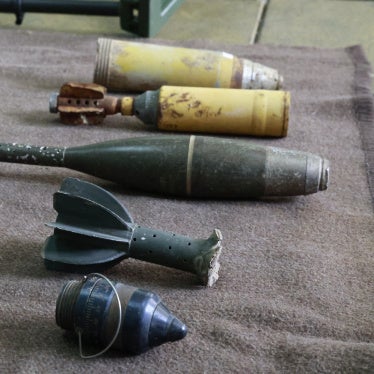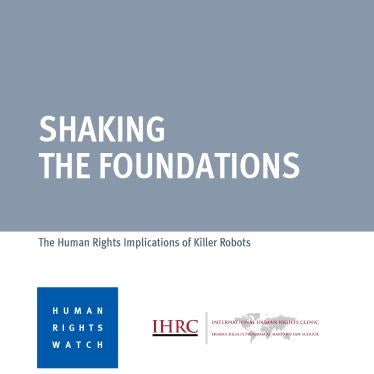Reacting to the U.S. decision to sign the treaty banning antipersonnel landmines in 2006, Human Rights Watch today called the decision a "step in the right direction," but urged that the signing date be moved forward.
Human Rights Watch noted that landmines claim an estimated 26,000 victims a year -- the majority of them innocent men, women and children -- so if every country waited eight years to sign, that could mean another 200,000 victims.
"This is a significant change in U.S. policy," said Stephen Goose, Program Director of the Arms Division of Human Rights Watch. "The debate is no longer if the U.S. should sign the ban treaty, but when, and how we can get there most quickly. By committing to sign the treaty, the U.S. can now be part of the solution to the landmines crisis, not part of the problem."
Human Rights Watch calls on the U.S. government to begin immediately exercising its diplomatic influence to convince recalcitrant governments to commit to signing the treaty. "Now that the U.S. has committed to the treaty, it should do everything it can to convince hold-out states, such as Russia, China, Finland, Turkey, Israel and Egypt to sign," said Goose. "The U.S. ability to bring other nations on board, and to encourage compliance with the treaty, could be a tremendous asset to the ban movement and save many lives and limbs in the long run," he said.
The announcement stops the disturbing backsliding in U.S. landmine policy since last fall. But, Human Rights Watch is very disappointed that the Administration felt the need to give itself an out by declaring it will only sign in 2006 if its search for alternatives has been successful. "The `need for alternatives' argument rings very hollow," Goose said.
Many military experts believe alternatives already exist. Two years ago, fifteen of the most senior and respected retired U.S. generals told the president, "Given the wide range of weaponry available to military forces today, antipersonnel mines are not essential. Thus, banning them would not undermine the military effectiveness or safety of our forces, nor those of other nations." Already, 126 governments, including every other member of NATO except Turkey, have signed the Mine Ban Treaty, indicating their willingness to give up the weapon now and to use alternatives in existence. "The weapon has already been declared illegal by the vast majority of the world's nations," said Goose. "It has been banned because it is indiscriminate and causes excessive harm to civilians. You can't continue to use an illegal weapon while waiting to develop alternatives," he said.
A notable element of the announcement was that the U.S. will also give up the antipersonnel mines contained in so-called "mixed mine systems," which combine antipersonnel and antitank mines in a single canister. Since last September the Pentagon has insisted on re-labeling those antipersonnel mines as "submunitions" in order to exempt them from any future ban.
Human Rights Watch is a founder of the U.S. Campaign to Ban Landmines and the International Campaign to Ban Landmines (ICBL). In 1997, the ICBL was awarded the Nobel Prize for Peace. Human Rights Watch is working to support the speedy ratification, universalization and implementation of the Mine Ban Treaty. It will be participating in an upcoming meeting on landmines in Moscow, Russia from May 27-29, 1998. Russia, like the U.S., has indicated a willingness to sign the Treaty, but has set no time frame.








